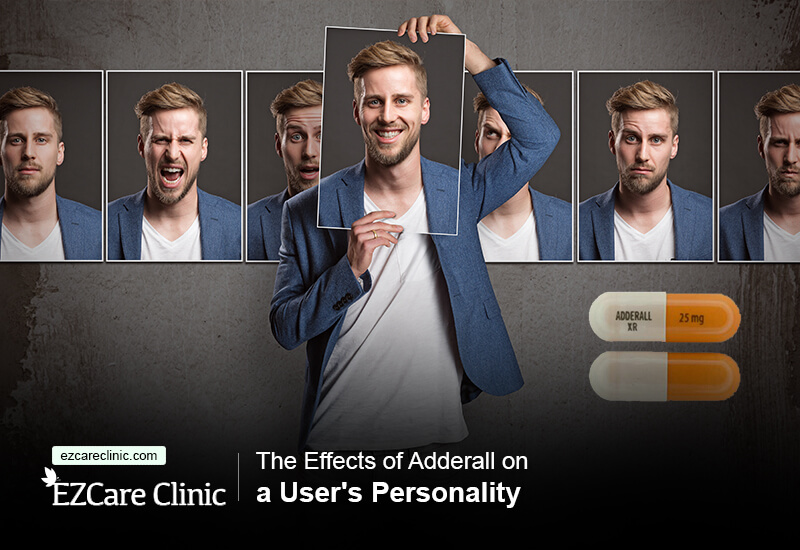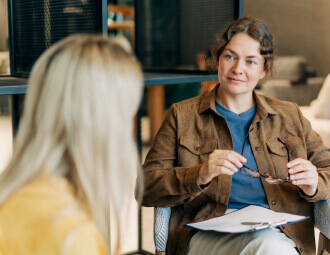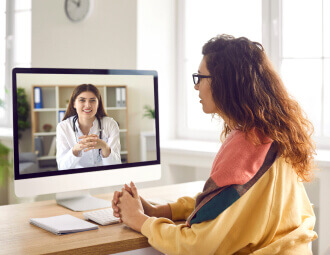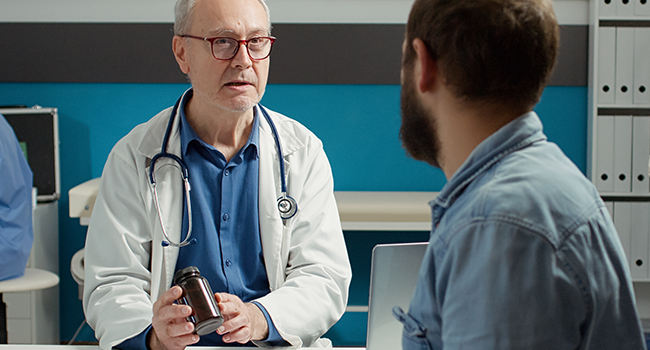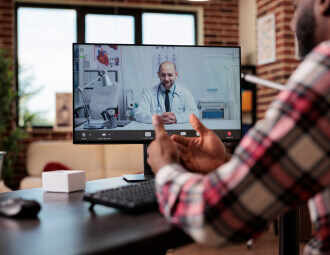Highlights
- Most research studies find that medication, especially stimulant medication, is the most effective treatment option for adult ADHD.
- However, there may be other ways to manage ADHD symptoms if you choose not to take medication, including therapy and lifestyle changes.
- It’s essential to talk to a healthcare provider and avoid making any treatment decisions on your own. ADHD is a chronic neurodevelopmental condition that requires professional support.
Millions of American adults live with attention deficit hyperactivity disorder (ADHD), a neurodevelopmental condition that can impact every area of life. With treatment, many people with ADHD are able to live happy, creative, and successful lives.
You may have heard that medication is the most effective way to treat adult ADHD. While research supports this, the “best” treatment for you depends on so many factors. If you choose not to or can’t take medication for whatever reason, there are many ways to manage ADHD without medication, such as therapy.
In this article, we’ll go over some of the best non-medication treatment approaches to adult ADHD and the research behind each.
Get personalized treatment online
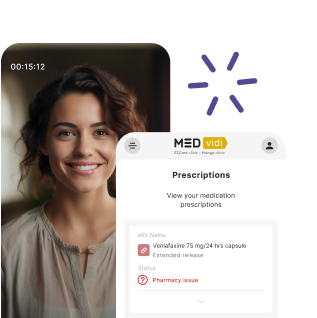
Understanding ADHD in Adults
Historically, ADHD has been thought of as something that primarily affects children. And although it is one of the most common neurodevelopmental conditions affecting kids, it continues to present in many adults as well.
According to official reports,
Adults with ADHD may:
- Struggle to focus on tasks.
- Feel disorganized and lose track of schedules or items.
- Forget appointments or why they entered a room.
- Have difficulty managing time and often run late.
- Interrupt others or speak out of turn without meaning to.
- Feel restless and find it hard to sit still.
- Make impulsive decisions that they later regret.
- Feel overwhelmed by emotions and struggle to regulate them.
- Find it hard to stay motivated and finish tasks.
- Hyperfocus on one thing and lose track of everything else.
Can ADHD Be Treated Without Medication?
Most standard treatment guidelines for adult ADHD, including the
Medication, especially stimulant medication, has been found to be the most effective treatment method for ADHD in adults. There are also effective non-stimulant options available if you can’t or choose not to take stimulants.
However, evidence also shows that non-medication treatment can be helpful in some cases. Psychotherapy, especially together with medication, can make a big difference in helping you manage ADHD symptoms. And although we need more research, there are certain lifestyle changes that can help as well. For most people, lifestyle changes alone are not enough to completely manage ADHD.
Your healthcare provider can walk you through each treatment method, including non-pharmacological treatments, and their pros and cons. If you’re looking for professional support, try telehealth treatment for ADHD with MEDvidi. Connect with licensed and experienced medical providers online within 48 hours and receive the help you need from the comfort of your home.
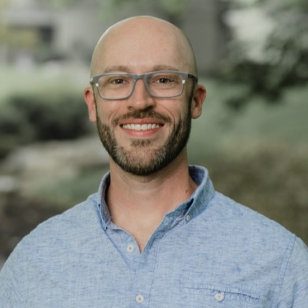
Therapy and Counseling
Most providers recommend a combination of medication and therapy for adult ADHD. However, therapy can be effective in managing ADHD without medication. Some of the most effective therapy types are discussed below.
Cognitive-Behavioral Therapy (CBT)
Standard treatment guidelines, including those of the AAFP, recommend CBT as the top therapy technique for adults with ADHD. CBT is a common therapy method that’s based on the principle that our thoughts, emotions, and behaviors are connected.
A CBT therapist can help you implement behavioral changes, including beneficial lifestyle habits, to help you better manage your life with ADHD. CBT methods also typically involve a psychoeducation component, where you’re taught about how ADHD affects your brain. Just being educated about ADHD can lower stress.
CBT therapists can also help you examine, and change, the unhelpful thinking patterns that might have arisen from a life with ADHD. For example, if you’ve lived with ADHD, you might have been unfairly labeled as “lazy” or “not meeting your potential.” You may have internalized these labels, especially if you weren’t appropriately diagnosed. CBT can help you take a look at these thinking patterns and change them to feel better about yourself.
In addition, CBT is also effective in treating other mental health conditions like depression and anxiety, which often affect adults with ADHD.
Mindfulness-Based Therapy
Mindfulness is an ancient technique that, at its core, is simply about staying aware of each present moment. It’s now commonly used in Western medicine for a wide variety of concerns, including stress, anxiety, and chronic pain.
Research has found that mindfulness-based therapy and practices could be helpful for adult ADHD as well, especially for focus. For example, one study found that mindfulness training was helpful in reducing symptoms of ADHD-related inattention that remained even after taking medication. In
Adults with ADHD also often experience emotional dysregulation, which means that you might have a hard time managing your own emotions. It can also cause impulsivity, or having a hard time with self-control. Mindfulness may be able to help you with these symptoms as well.
Family Therapy and Couples Counseling
Parent training is an essential component of treatment for children with ADHD, because ADHD affects every facet of life — and parents and caregivers need to understand how to best support their children in every area.
For adults, family and couples therapy can be very important as well. Although your partner and family members probably aren’t caring for you in the same way as parents care for children, they’re still part of your support team — and when the people on your team understand how ADHD works, life can get a lot easier.
ADHD can also affect your relationships. For example, your partner might become frustrated with you for having a hard time with organization or keeping up with appointments and dates. Couples or family therapy can help you work through these relationship challenges and come to compromises and solutions together.
Support Groups
Although support groups aren’t usually a type of psychotherapy, they are a non-medication option that could be helpful for living better with ADHD. In support groups, you meet with other people who also live with ADHD and can understand what you’re going through. Connecting with a group like this can give you practical ideas on strategies to cope with ADHD and also help you feel less alone.
Some support groups are peer-led, which means that you meet with a group of people with ADHD without a licensed facilitator present. Others have a designated leader, who might teach the group new skills, for example. Both can be helpful in different ways.
ADHD Coaching
Many adults with ADHD have found that coaching helps them learn — and stick to — new strategies to better manage their lives. For example, an ADHD coach could teach you how to manage your time, communicate with loved ones, and organize your living space.
It’s important to know that coaching isn’t the same thing as therapy, and the restrictions and supervision of people promoting themselves as coaches are often not as strict. ADHD coaching can be a very helpful intervention, but make sure you choose a coach who’s certified by the International Coaching Federation (ICF).
Lifestyle Changes
Lifestyle changes may not be able to treat ADHD symptoms in the same way that medication and therapy can. But some research has found that they can make a difference in how well you live alongside ADHD on a day-to-day basis.
Nutrition
1. Meal Planning
Planning meals in advance can be helpful for you if you struggle with planning and organization because of ADHD. Knowing what and when you are going to eat will help you maintain a balanced and nutritious diet and avoid skipping meals. Note that meal planning is not just about cooking; it starts with making detailed grocery shopping lists and remembering to go to the store regularly.
2. Foods Choices
Research is still ongoing when it comes to nutrition and ADHD. According to the Attention Deficit Disorder Association (ADDA), there are certain types of foods and nutrients that may be helpful for ADHD, including:
- Fruits and vegetables
- Complex carbohydrates
- Protein-rich foods
- Healthy fats
However, studies are limited, and there’s no food that can “treat” ADHD. In general, it’s best to strive for balanced meals that nourish your body and your mind.

3. Supplements and Vitamins
Some supplements may be helpful as a part of your ADHD management plan, such as:
- Iron
- Zinc
- Omega-3 fatty acids
- Vitamin D
- Magnesium
However, remember to consult with your healthcare provider before taking any supplements, especially if you are currently taking any medications to avoid interactions.
Read more: Natural Remedies for ADHD
Sleep Hygiene
Getting enough restful sleep each night is an essential part of dealing with ADHD without medication. Unfortunately, living with this disorder can make it difficult to sleep —
These conditions may also get locked in a vicious cycle — ADHD symptoms can make it harder to sleep, but being sleep-deprived can also make your ADHD symptoms worse. So practice good sleep hygiene habits, and it may help manage both insomnia and ADHD.
4. Sleep Schedule
It may be difficult to prioritize getting restful sleep when you have time blindness or find yourself hyperfocused on something. Consider setting up notifications for the time to go to bed and wake up at the same time every day; this will regulate your body’s internal clock, and consistent bedtimes will have positive effects on your overall health and lower stress.
5. Environment for Quality Sleep
If you have the tendency to be overstimulated because of ADHD, try to minimize clutter and use blackout curtains to ensure complete darkness. It’s also helpful to keep the room cool, try weighted blankets, and use calming scents in the bedroom.
6. Limited Screen Time
Having screen exposure in the evenings or at nighttime can cause poor sleep, which, in turn, may cause fatigue, irritability, and distractibility the next day. Try to switch to a relaxing activity without your phone or tablet at least an hour before bedtime to reduce the effects of blue light and avoid overstimulation.
7. Relaxation Techniques
Try guided meditation, breathing exercises, or progressive muscle relaxation to get ready for sleep. All these can help deal with racing thoughts, reduce restlessness, and signal to your body that it’s time to switch from daytime activities to sleep.
Exercise
Exercising is one of the best methods of ADHD treatment without medication. There is more and more
This is in large part due to the way ADHD affects the brain. ADHD can cause
Exercise has also been found to improve executive functioning. These are a set of complex cognitive skills like planning, decision-making, and judgment. Adults with ADHD frequently struggle with these skills, which can make life difficult.
Just make sure not to exercise too close to bedtime, as this can make it more difficult to get restful sleep.
8. Finding What Works Best for You
Choosing the most suitable activity might take time but with so many options, you’ll find the right one. Try aerobic exercises, dancing, cycling, swimming, running, martial arts, or simply taking daily walks. Also, while it’s important to find something that feels like the ideal fit, that doesn’t mean you have to stick with it forever; you can always switch to another activity later if you need novelty again!
9. Keeping Yourself Motivated to Exercise
In addition to choosing the activity that excites you, remember to find out what keeps you motivated. It can be a trainer who inspires you, gamification through small daily or weekly challenges, small rewards for achieving your goals, or anything else that will keep your physical activity consistent over time.
Environmental Modifications for ADHD
Lastly, modifying your environment to better suit your brain with ADHD can be helpful. ADHD is a form of neurodivergence, which means that, in many ways, the world isn’t set up to help you succeed. But you can modify your environment to make everyday life easier for you. This applies to both your home and your workplace.
10. Planners, Reminders, and Time-Management Apps
One of the hardest parts of living with ADHD as an adult is its effects on planning and organization. Because of the executive functioning deficits that come along with ADHD, you might struggle with things like ADHD paralysis and time blindness. This can have serious impacts on your life, including at the workplace and in relationships.
Learning new planning and organizational skills can make life much easier. For example, you might learn how to take notes more efficiently or how to map out your calendar. ADHD support groups, as well as ADHD coaching programs, can help you learn these skills. In the meantime, try different types of planners, reminders, and online resources like Notion or Trello to organize different areas of your life.
11. ADHD-Friendly Workspace
Not only are workplace accommodations for ADHD helpful to you, but you’re also legally entitled to them because of the Americans with Disabilities Act. Asking for accommodations doesn’t mean that you’re “weak” — these are often necessary changes that you deserve to help your environment work for you in the same way it works for your neurotypical peers. Some examples of modifications include more flexible deadlines and a sit-stand desk (to help you with hyperactive energy).
12. Minimized Distractions
The details of this tip are very versatile because they depend on what distracts you most. For some people with ADHD, keeping their desk and other spaces clear of clutter is a must to increase productivity. For others, noise-cancelling headphones or the sounds of white noise are important and help them concentrate. However, everyone can benefit from blocking notifications while working and avoiding multitasking.
Pros and Cons of Not Taking ADHD Medication
So, can ADHD be treated without medication? It’s hard to say definitively. Research has found that, for most people, medication is the most effective way to treat ADHD in adults. But that doesn’t necessarily mean it’s the only way. It may be possible for some people to control ADHD symptoms without medication.
Many people find that ADHD medication gives them uncomfortable side effects. Others might choose not to take it for other personal reasons.
However, keep in mind that untreated ADHD comes with many risks and consequences. If you’re going to try managing ADHD without medication, then it’s essential to talk to a healthcare provider about it and not try to go about it on your own.
At MEDvidi, you can connect with licensed medical providers who can guide you through the best ways of managing ADHD, whether you want to take medication or not. Your appointment is a click away — and you can see a provider as soon as tomorrow to start managing adult ADHD.
FAQs
Can ADHD go away without medication?
With or without medication, ADHD doesn’t “go away.” It’s a neurodevelopmental condition, which means that you’ll live with it for the rest of your life. But there are many ways to manage ADHD symptoms, including medication and non-medication treatments.
What is the holistic approach to ADHD?
Typically, taking a “holistic” approach means including a wide variety of different treatments in your ADHD management plan. For example, people might use a combination of therapy, medication, and lifestyle changes to holistically manage ADHD.
Can caffeine help ADHD?
Caffeine can have some benefits for ADHD, including improved focus and alertness. But it can also have drawbacks, like more restless energy and agitation. You should never use caffeine as a replacement for prescribed ADHD treatment.
Can I treat ADHD by myself?
No. Regardless of whether or not you want to take medication, you need professional support at least at the initial stages of your ADHD management journey.
What is the best non-drug treatment for ADHD?
The most effective way of treating ADHD without medication is with therapy. Therapy methods, including CBT and mindfulness-based therapies, have been found to be effective in reducing ADHD symptoms, although it’s most effective in combination with medication.


